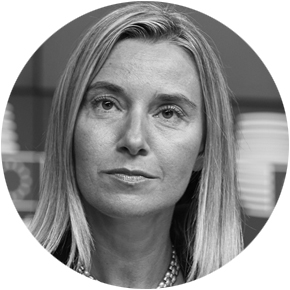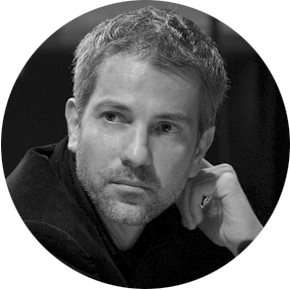High Representative of the European Union for Foreign Affairs and Security Policy and Vice-President of the European Commission Federica Mogherini will visit Armenia on March 1. Ahead of her visit she gave an exclusive interview to Mediamax.
- Together with Armenian FM Edward Nalbandian, you announced the launch of negotiations on a new legal framework of Armenia-EU relations last December. The new document will be based on the “political part” of early negotiated Association Agreement that wasn’t signed due to Armenia’s membership in Eurasian Economic Union. Does the start of the negotiations mean that the EU and its members overcame the frustration that aroused in September 2013?
- We have turned the page on any uncertainties created back in 2013. Our European Union is Armenia’s main trading partner, relations between our peoples date back to time immemorial, and we share a strategic interest in the stability of your region. For economic, historic and international reasons, it was in everyone’s interest to move beyond the impasse.
So in the last few months we have had an intense schedule of meetings, both multilaterally – in the Eastern Partnership framework – and in bilateral settings. I have met with Foreign Minister Nalbandian on many occasions, President Tusk visited Yerevan in July, and my colleague Commissioner Hahn visited last March.
In the meantime, the EU has also reviewed its approach towards our neighbourhood. A Union of half a billion citizens could be tempted to look at its neighbours and see potential “satellites”. But it would be a non-starter. We don’t need satellites: we need partners, and strong ones. Moreover, a partnership with our European Union does not exclude other international alliances. I believe that stronger relationships between the EU and Armenia can benefit not just our countries, but the entire region.
- Parliamentary elections will be held in Armenia in 2017 - this will be the first voting after adopting a new Constitution that transforms the country into parliamentary republic. Armenian opposition often criticizes the EU for “shutting eyes” to the irregularities observed during past parliamentary and presidential elections and the referendum on Constitution held in December, 2015. Are you going to give special attention to the elections of 2017?
- We have never 'shut our eyes' when it has come to elections. Regular and transparent elections are a key feature of a solid democracy, but no electoral process is perfect and all countries can benefit from the presence of external observers. In fact, countries in our European Union systematically invite international observers to monitor our votes. This is why we always keep our eyes open on events in our neighbouring countries: we can help each other, as partners. And this is why after the constitutional referendum we called for a clarification by the Armenian authorities on the alleged irregularities. When the Office for Democratic Institutions and Human Rights at the OSCE issued its final report on the vote, we shared its observations and recommendations.
The alleged frauds should be independently investigated and, if they are confirmed, action will be necessary. We have also made a series of proposals on how electoral reform could be carried out. I believe our recommendations can prove valuable towards next year's parliamentary elections. If invited, a full-fledged OSCE election observation mission as well as domestic observers would serve as an additional safeguard and reinforce the 2017 elections’ credibility. We will keep trying to support your electoral process, as any good friend would do.
- Does the EU formally support the proposal of the OSCE Minsk Group Co-Chairs to create a mechanism to investigate violations of the ceasefire on the Contact Line and Armenian-Azerbaijani border? Can EU provide any technical expertise and means for installing such a mechanism?
- It is clear that the status quo is unsustainable. Over the past year we have witnessed an escalation of violence along the line of contact, as well as along the international border between Armenia and Azerbaijan. Heavy weapons were used, civilians were targeted. No one can afford to keep going down this path. A political settlement to the conflict, in accordance with international law, is more urgent than ever.
Our support to the mediation efforts of the Minsk Group has been unwavering. The European Union will support any progress made in the negotiations. Any negotiated attempt to stabilise the security situation, including an incident prevention mechanism, would have our Union’s full backing. And we stand ready to consider further support in case positive steps are taken on these matters. The stakes are way too high – for your two countries and for the region. Over two decades after the beginning of the war, it is time for your leaders to show courage and make a move towards peace. We will do all we can to help them in this direction.
- The EU and its Member states are “rediscovering” Iran after lifting the sanctions. An opinion was voiced recently that having centuries old trade and cultural ties with Iran, Armenia can become a “new Hong Kong” and serve as a “hub” between the EU and Iran. Does the EU need such a hub?
- Armenia has followed closely our negotiations with Iran and the deal’s implementation after our historic announcement in Vienna last July. To me, it was yet another confirmation that the agreement will not only benefit the countries that were directly involved in the talks, but the entire region and the whole world. It was a confirmation that we truly reached a win-win solution. The deal has made the Middle East, the Caucuses and Central Asia a safer place, and it can start to foster more positive regional dynamics. The full integration of Iran in the international community and the global economy will benefit not just Iran, but potentially all its neighbours, including Armenia. I will go back to Iran soon, together with a number of other European Commissioners, to discuss both our bilateral relationship and the situation in the Middle East and the broader region. I can assure you that the EU will also pay particular attention to the regional dimension of our conversations. Improved neighbourly relations, regional stability and development are in our interest as much as they are in yours.
- Armenia is the third European country to host the biggest number of displaced people from Syria after Germany and Sweden. Do you think that Armenia can negotiate some special package with the EU aimed at helping those people and creating new jobs for them?
- European public opinion too often forgets that we are not the only ones to be touched by the current refugee crisis: small countries like yours are showing great solidarity to those who are fleeing war and destruction. Your efforts for protection and integration tell us that the rich and powerful Europe cannot be afraid of welcoming our Syrian friends. As you know, the EU and myself personally are putting our best efforts to bring the conflict to an end, but also not to lose entire generations of Syrian refugees to war and despair. Last month, in London, we have announced that we are mobilising €3 billion for Syrians in their country and abroad. We are financing a number of projects for education, jobs and for supporting the host communities. We will make sure that part of this support contributes also to your generous solidarity.





















